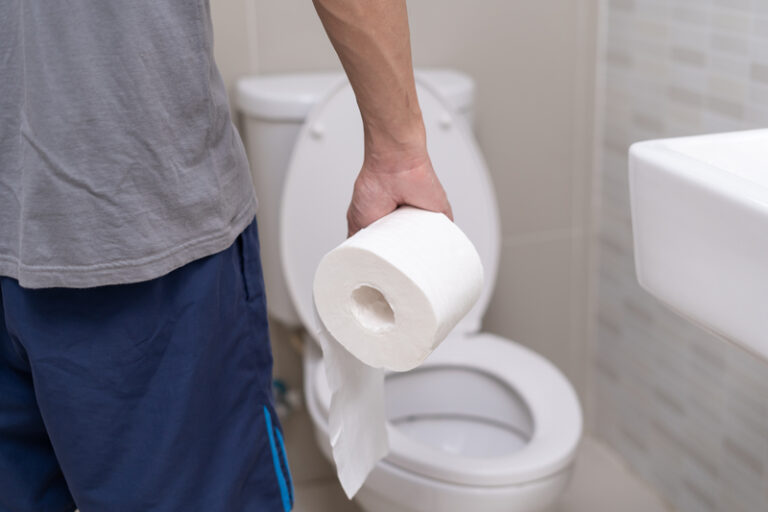Nobody likes to talk about their bowel habits. It’s a “nasty” subject. But if you don’t talk about it, or don’t know what is healthy, or what to do about it, then you may ignore important signs that your body is trying to communicate, potentially leading to discomfort, health complications, and a lower quality of life. Medically defined as fewer than three bowel movements per week, constipation is characterized by hard, dry, or lumpy stools that are difficult to pass. While occasional constipation is normal, chronic cases can lead to serious complications.
The causes of constipation are diverse and multifaceted. Dietary factors play a crucial role, including low fiber intake, insufficient water consumption, excess processed foods, insufficient fats and high dairy intake. Lifestyle issues such as stress, physical inactivity, travel, and ignoring the urge to defecate can also contribute. Medical conditions like IBS, pelvic floor dysfunction, diabetes, neurological disorders, hypothyroidism, and intestinal obstructions are associated with constipation. Additionally, certain medications (pain relievers, some hypertension meds, antacids, antidepressants, antihistamines, and chronic laxative use), hormonal changes, aging, and gut microbiome imbalances can exacerbate the problem.
Chronic constipation should not be ignored, as it can lead to complications such as hemorrhoids, anal fissures, bowel obstruction, rectal prolapse, weakened pelvic floor muscles, diverticulitis, and in rare cases, colorectal cancer.
To alleviate constipation, several lifestyle changes are recommended: Increasing fiber intake through fresh fruits, vegetables, whole grains, and legumes is crucial. Avoiding constipating foods such as white flour and dairy products, and incorporating more fats are key changes. Staying hydrated by drinking adequate water and exercising regularly can promote bowel motility. It’s important not to ignore the urge to defecate and to establish a consistent bathroom routine, aiming for two bowel movements per day. Many people have inadvertently trained themselves to be constipated since childhood by ignoring bodily signals due to inconvenience or social pressures. Retraining oneself involves not ignoring the urge to go and establishing regular bathroom habits. A morning routine of sitting and gently attempting to defecate can be helpful, followed by a similar routine before bed.
Proper toilet posture can also make a significant difference. Throughout most of human history, squatting was the natural position for bowel movements. Modern toilets have changed this, but elevating the knees above waist level using a stool (such as a Potty Squatty or Poop Stool) can help mimic the squatting position, making bowel movements easier and more complete.
While there are various other remedies available, including herbal treatments, supplements, and acupuncture, these basic lifestyle changes can significantly improve bowel health and overall well-being. If symptoms persist or are accompanied by severe pain, bleeding, or unexplained weight loss, it’s crucial to consult a healthcare professional for proper evaluation and treatment.
Want to hear more from Dr. Carling? Check out our podcast. Search for VitalHealth4You on your favorite podcast listening app or go to vitalhealthcda.com/podcasts/
©2024 Holly A. Carling, O.M.D., L.Ac., Ph.D.







